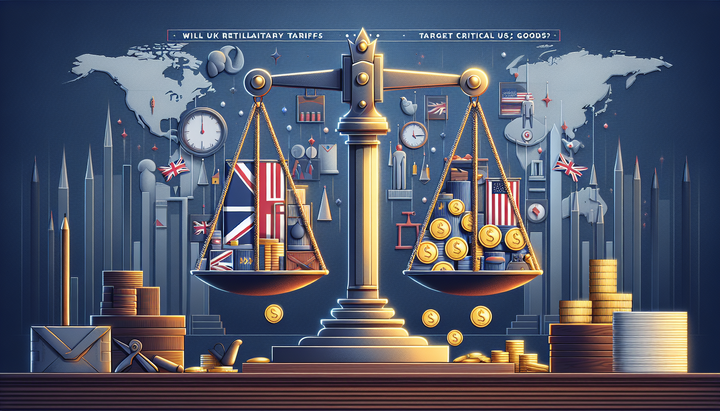UK Economic Growth Sees Modest Increase in November, Raises Stagnation Concerns

UK Economy Shows Marginal Growth in November
The latest data from the Office for National Statistics (ONS) indicates that the UK economy witnessed a modest growth of 0.1% in November, following a similar decline in the previous month. This slight uptick has brought some relief to current economic policymakers, especially the embattled Chancellor Rachel Reeves, amidst ongoing concerns about economic stagnation and sluggish growth patterns.
Government and Economic Analysts Express Caution
While the Treasury might find solace in this upward trend after the October budget, the growth fell short of the 0.2% forecasted by City economists. The slower-than-expected progress suggests a heightened possibility of an interest rate cut by the Bank of England in the upcoming month, potentially stimulating the economy in response to the sustained stagnation fears.
Stagnation Fears Remain Amidst Unchanged Quarterly Performance
Despite November's positive growth, the economy remained stagnant in the broader three-month frame leading up to the month’s end. The ONS data highlighted a 0.1% decline in GDP for September and October, leading to an overall flat economic performance in the final quarter of 2024. This stagnation aligns with predictions from the Bank of England, which did not foresee any growth during this period.
Sectors Driving and Hindering Economic Activity
Detailing November's growth contributors, Simon Pittaway, a senior economist at the Resolution Foundation, commented on the mix of sectors influencing UK economic performance. Services sectors such as wholesaling, hospitality, and IT showed growth, countering declines in others like accountancy and business rental leasing. Meanwhile, construction experienced growth fueled by new commercial developments; however, declines were reported in production sectors, particularly across manufacturing and oil & gas extraction industries.
Potential Long-Term Stagnation and Inflation Concerns
Analysis from economic experts forecasts potential stagnation for the upcoming quarters, despite an unexpected decrease in inflation from 2.6% to 2.5% in December. These conditions risk leading the UK into a prolonged phase of slow economic performance paired with sustained inflation, posing challenges for growth-oriented economic planning.
Government’s Plan for Economic Revitalization
Chancellor Rachel Reeves has attributed the current economic conditions to “14 years of economic stagnation,” emphasizing the urgent need to activate the government’s Plan for Change. The plan prioritizes economic stimulus measures aimed at rejuvenating growth and preventing further deceleration, underscoring its critical role in navigating through potential stagnation spirals.



Comments ()